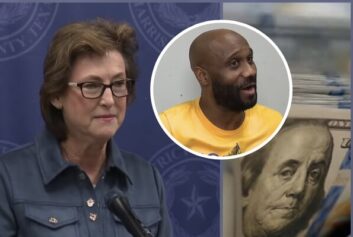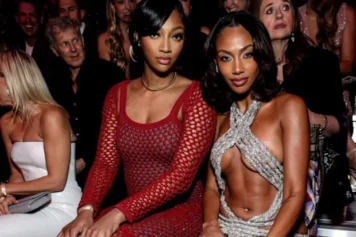Back when Afrika Bambaataa converted the Black Spades – by far the largest gang in New York City in the 1970s – into the Universal Zulu Nation, hip-hop’s preeminent collective for the global promotion of our culture as a weapon of mass creation, he urged its members — all party people, actually — to transfer their adolescent angst into various expressions of music, dance and art. No minor miracle to be sure, but it happened. And though crime in the five boroughs didn’t exactly disappear, hundreds, if not thousands, of kids soon found themselves doing a lot more dancing, DJing, MCing or painting than they were fighting.
Well…kinda.
After more than a few scrapes with both the NYPD and the usual assortment of adversaries found in his neighborhood of Spanish Harlem — colloquially called “El barrio,” aka “the ‘hood” in español — one kid, born Hector Camacho on May 24, 1962 in Bayamón, Puerto Rico and raised in New York from the age of three, was transforming his teenage rage into Golden Gloves championships; smiling, cracking jokes and poppin’ shit the entire time.
To say that world-class boxers (and those aspiring to be) require a healthy dose of swag is to say that if you wanna take a shot at being an NBA center, it’s a pretty good idea to be tall first. By the time “Macho” Camacho stepped into the professional ring in 1980 as part of that first wave of hip-hop kids, he displayed the aforementioned swag in spades, a kind of confidence gleaned — no, earned – from having survived NYC in the 1970s. The kind of confidence that would become the de facto attitude of the Hip-Hop Generation.
In the five years before Iron Mike Tyson turned pro (and subsequently rocked both hip-hop and the world-at-large with the same impact that his deadly hooks had on his opponents), Macho had racked up the NABF and WBC Super Featherweight titles, on his eventual way to the WBC Lightweight, WBO Junior Welterweight, IBC Welterweight and Middleweight, NBA Super Middleweight, WBF International and WBE Junior Middleweight chips with a career record of 79-6-3.
Though his shit-poppin’ mellowed with age, Hector was still smiling, still cracking jokes while maintaining that “Macho Time” was forever, despite reported problems with drugs and run-ins with the law following his retirement. Like other greats before him, he found new hustles to validate that claim, including stints on “¡Mira quien baila!,” the Spanish-language Univision network’s equivalent to “Dancing With the Stars”; as a celebrity correspondent on the same net’s top-rated entertainment/talk program “El gordo y la flaca”; and by starring in his own reality dating competition for former NBC Chairman Ben Silverman’s Nuevon network, titled after Camacho’s catchphrase above.
On November 20, news broke that Macho was shot in the face while in the passenger seat of a friend’s car in Bayamón, PR and rushed to the hospital, where he languished in critical condition. Not only was the sports community caught with its mouth agape, it seemed all of hip-hop held its collective breath via Facebook posts and Twitter feeds offering untold prayers for his recovery.
When he was declared officially dead four days later, folks far and wide expressed both shock and sorrow, from everyday fans to legends like Lennox Lewis, Sugar Ray Leonard and Oscar de la Hoya, celebs like Grammy-winner (and fellow Puerto Rican) Elvis Crespo and EXTRA! host cum fitness guru (and quiet-as-its-kept unquestionable beast with the knuckle game) Mario Lopez, as well as the likes of Spike Lee, Big Daddy Kane and LL Cool J, who tweeted: “RIP Macho Camacho. When I was a kid you took a pic with my mother. I respected that. I pray that your family will make it through w/ grace.”
He left behind four children, including Hector “Machito” Camacho, Jr., who followed in his father’s footsteps to become a fighter himself (admittedly not in the same class, despite a decent enough 52-4-1-1 record), and his mother, who arranged for her son to be buried in St. Raymond’s Cemetery in the Bronx, citing his connection to and undying love for the city that raised him from wild-child to man, albeit with his childish smile always intact.
Though he had understandably become more associated with the island of Borinquen than the mainland of the Boogie Down, more with a salsa swing than with a battle rap, he was one of hip-hop’s greatest, indeed. See, to us, he was a little bit more than Puerto Rican, a little bit more than Nuyorican. To us, born of Kool Herc’s impulse to keep those break beats going a little bit longer and Afrika Bambaataa’s dream of building a nation based on nothing more than peace, love, unity (and having fun!) and DJ Disco Wiz’s drive to make sure that Latinos be very much counted among its members, Hector “Macho” Camacho was a Puerto Rock to the core, the first champion of the Hip-Hop Generation.



